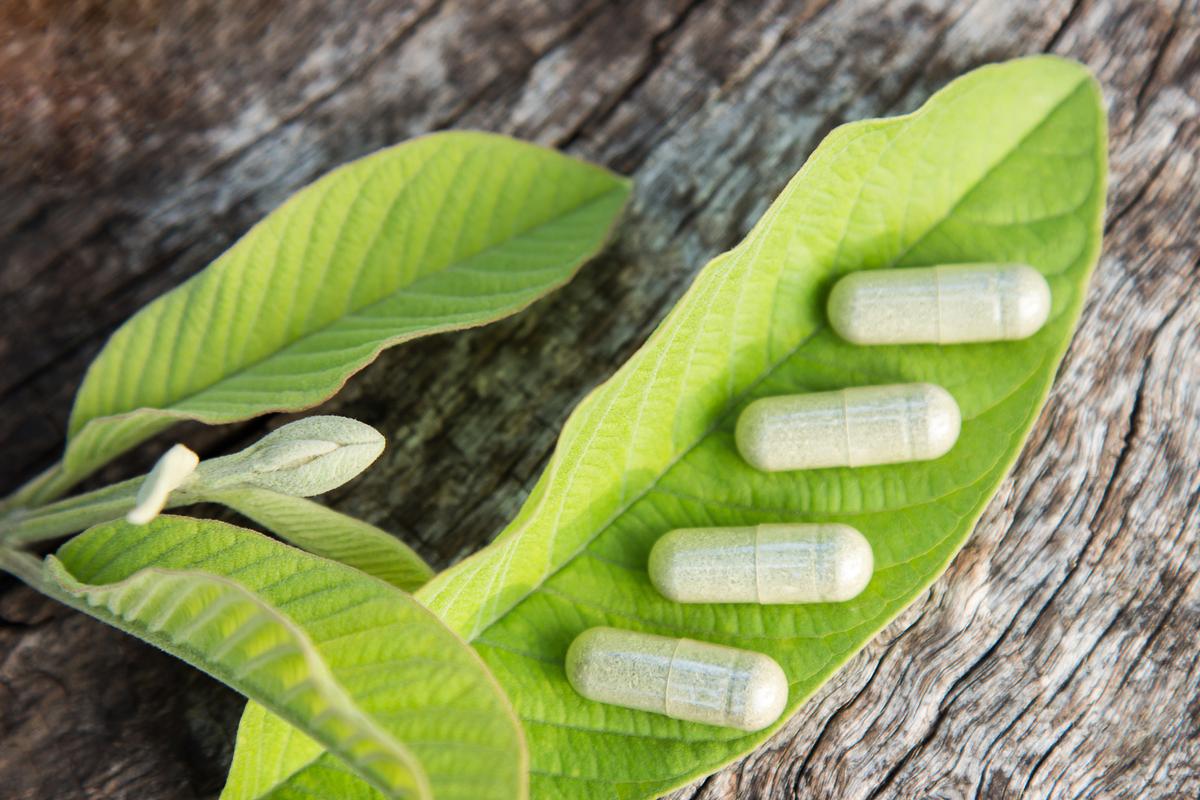
This is obviously important and i would like to see how fermentation affects the result. At least we know that a handful of leaves boiled up will benefit your ability to see off cancer cells.
i wonder what it tastes like.
I need to make a batch of my potion and adding these is possible.
Humble Guava Leaf Harbors Hope Against Cancer’s Scourge
(Taweep H/Shutterstock)
By GreenMedInfo
2/8/2024Updated:
https://www.theepochtimes.com/health/humble-guava-leaf-harbors-hope-against-cancers-scourge-5581907?
Could the humble guava tree growing across the tropics harbor healing answers to cancers afflicting both wealthy and impoverished nations? Extensive research suggests so.
Emerging investigations indicate extracts from Psidium guajava leaves exhibit potent anti-cancer effects against numerous human cancer cell lines spanning lung, breast, prostate, liver, colon, ovarian, cervical, gastric, and skin cancers. [1–3]. Bioassays demonstrate guava leaf extracts suppress cancer cell proliferation, induce apoptosis, and inhibit tumor metastasis and angiogenesis pathways. [1, 4] Several bioactive phytochemicals have been isolated and contribute specific anti-cancer actions [4]. As guava plants grow abundantly across tropical and subtropical climates in Asia, Africa, and South America, continued research into traditional guava leaf preparations as an economical complementary medicine for cancer is compelling [3, 5].
Guajadial, a meroterpenoid enriched from guava leaf oil, significantly inhibits nonsmall cell lung cancer cells. Both in vitro and mouse model experiments demonstrate suppressed proliferation and migration of A549 and H1650 cells [2]. An associated fraction with further enrichment inhibited breast, prostate, colon, ovarian, and skin cancer cells up to 100 percent at low microgram doses without harming normal cells [1].
Various other terpenoids, a novel benzophenone, and diverse flavonoids identified confer cancer-selective anti-proliferative, pro-apoptotic, anti-inflammatory, and antioxidant effects [4–6]. For example, guavinoside C, guajadials D and E, apigenin, and quercetin each inhibit lung, liver, breast, cervical, and gastric cancer cells at higher potency than conventional agents like tamoxifen [4–7].
Several guava compounds act through complementary molecular signaling pathways, including suppressing markers enabling proliferation (AKT, mTOR, S6K1), survival (Bcl-2), and metastasis (COX-2, VEGF). Others enhance caspase-mediated apoptosis or reactive oxygen species generation in cancer cells. A few extracts reduced colon cancer prostaglandins and DNA synthesis. One fraction potently restored anti-tumor immunity balance. [5–9]

(Fecundap stock/Shutterstock)
While most research remains cellular, mouse models confirm certain guava leaf extracts and terpenoids reduced xenograft prostate and skin tumors by over 80 percent, outperforming leading chemotherapies minus excessive toxicity. Anti-inflammatory phytoestrogens likely contribute therapeutic activity against hormone-positive reproductive cancers akin to tamoxifen. [1, 9]
This amalgam of preclinical evidence convinces guava’s traditional status as a “cancer curer” and merits modern reinvestigation. Bioassays indicate anti-cancer potential surpasses produce alone with leaf extracts eliciting 100-fold greater tumor inhibition. [10] Though genetics, preparation methods, and solvents influence potency, hot water leaf infusions may provide accessible chemopreventive activity. [5] With breast cancer now the most common carcinoma afflicting over 2 million annually, everyday guava leaf tea could offer economical frontline protection between screenings. [11] Given amenable cultivation, locally sustainable guava leaf extracts also address financial barriers limiting cancer care access across Africa and Asia. [3, 12]
However, exhaustive phytochemical profiling, pharmacokinetic studies, and rigorous clinical trials remain lacking before formal guava extract adoption alongside surgery, chemotherapy, and radiotherapy. While research continues, consuming traditional guava leaf preparations as supplemental infusions offers affordable nutrition with scientific support. After all, when it comes to combatting cancer’s global crisis, research shows we need all allies in arm’s reach, whether leaf or laboratory.
Originally published on GreenMedInfo
◇ ReferencesRizzo, L. et al. Curr Med Chem. 2014. 21(21):2322-30.
Wang, Y. Fitoterapia. 2018. 129:73-77.
Lok, B. et al. Life. 2023. 13(2):346.
Gao, Y. Nat Prod Bioprospect. 2013. 3(1):14-9.
Kaileh M. et al. J Ethnopharmacol. 2007. 113(2):510-6.
Feng, XH. et al. Bioorg Med Chem Lett. 2015. 25(10):2193-8.
Priam, F. et al. Res Sq. 2021. Preprint.
Ryu NH. et al. J Med Food. 2012. 15(3):231-41.
Seo, N. et al. Anticancer Res. 2005. 25(6B):3763-70.
Manosroi, J. et al. Cancer Lett. 2006. 235(1):114-20.
WHO. Cancer Fact Sheet. 2022. Accessed: 2 February 2023.
WHO. Press release. 2020. Accessed: 2 February 2023.
No comments:
Post a Comment